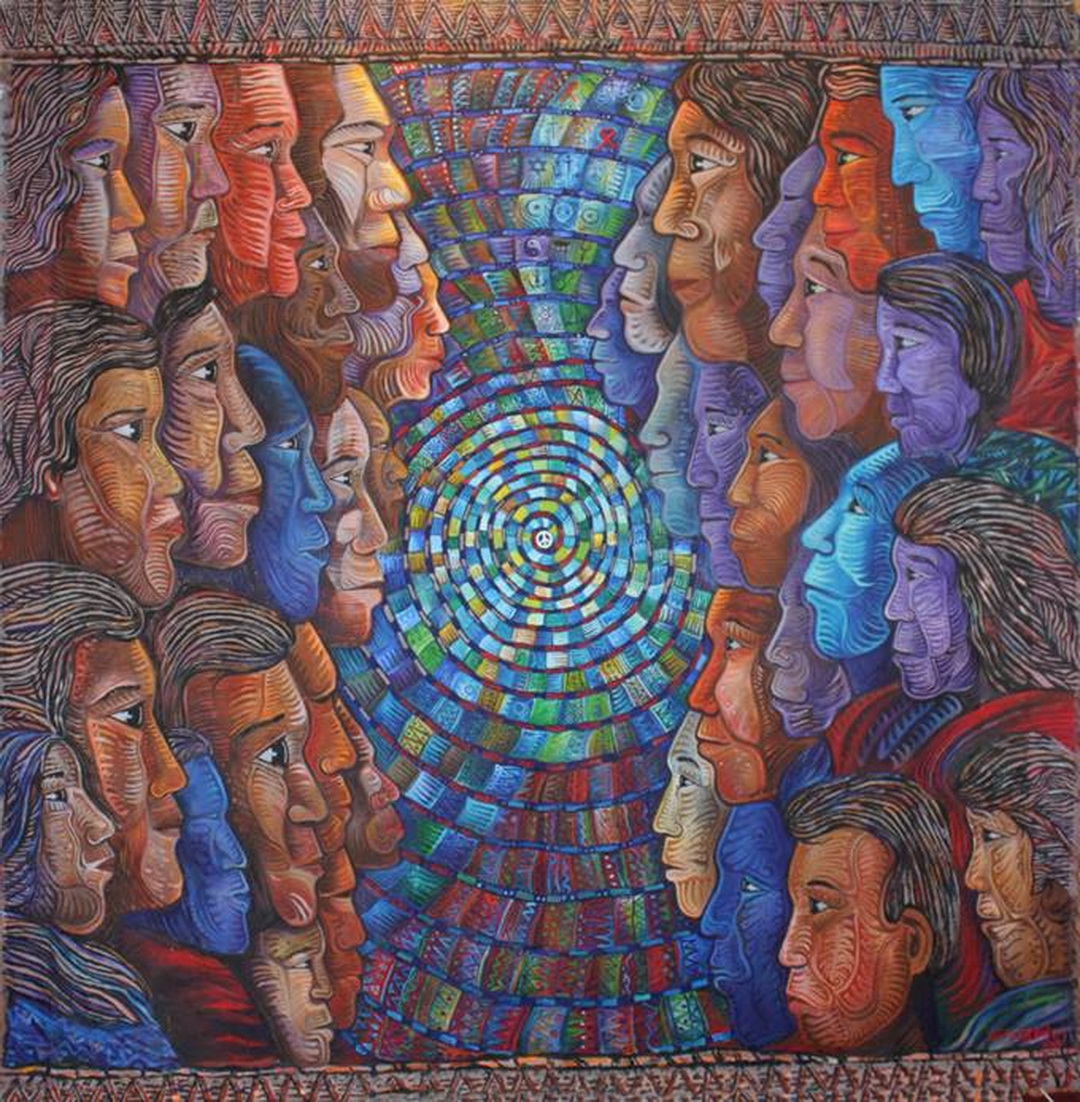In the continuum of human existence, the aspiration for peace has often been the North Star guiding civilizations through tumultuous epochs. The Bahá’í teachings, particularly the principle of Unity in Diversity, posits that it is not merely an ideal but a fundamental necessity for a harmonious future. This philosophy embraces a rich tapestry of cultural, religious, and ethnic distinctions, proposing that through mutual respect and understanding, a peaceful world is conceivable. The metaphor of a mosaic comes to mind—a collection of diverse pieces, each contributing unique beauty to form a coherent and striking whole.
The central tenet of Unity in Diversity can be perceived as a clarion call to transcend division and discord. It suggests that humanity, akin to an orchestra, flourishes when distinct instruments—representative of varied cultures and beliefs—converge to produce a symphonic resonance. This harmonious collaboration amplifies an ethereal sound that reverberates through the ages, emphasizing the vibrancy inherent within diversity. Yet, the question looms: can a truly peaceful existence be realized in an increasingly polarized world?
To explore this query, it is essential to examine the social fabric that binds humanity together. At the core of Bahá’í teachings lies the assertion that all individuals, regardless of their background, are part of an interconnected human family. This perspective fosters a profound sense of belonging and solidarity, where the flourishing of one is intrinsically linked to the flourishing of all. The notion is frequently illustrated through the imagery of a garden: a verdant paradise where various plants, each with their unique attributes, grow together, enriching the environment. This botanical metaphor illuminates the potential for collective growth and productivity, encouraging the nurturing of diversity as a source of strength rather than a catalyst for conflict.
The journey toward peace, however, necessitates more than mere acknowledgment of our shared humanity. It calls for active engagement in dispelling ignorance and prejudice. Education emerges as a pivotal mechanism in this transformative process. As the seeds of enlightenment are sown, they bear the fruit of compassion and understanding. The Bahá’í community ardently advocates for universal education, recognizing its capacity to dismantle barriers and cultivate a genuine appreciation for diversity. When individuals are equipped with knowledge, they are more inclined to embrace differences and challenge the paradigms of divisiveness that have historically marred interpersonal relations.
Moreover, the collective endeavor of fostering unity requires concerted efforts to address inequalities that pervade societies. Social justice, as illuminated within Bahá’í doctrine, underscores the imperative to rectify systemic injustices that disproportionately affect marginalized communities. The metaphorical ladder of progress can only be ascended if each rung—representative of various social strata—is equally fortified. The realization of peace hinges upon the establishment of a just society where every voice is valued and heard. Here, the interplay between diversity and justice emerges as a pivotal framework for ensuring the tapestry of humanity remains vibrant and intact.
In amplifying the connection between diversity and peace, one must not overlook the role played by spiritual development. Bahá’í teachings elucidate that inner peace is intrinsically linked to collective tranquility. The nurturing of virtues such as empathy, forgiveness, and compassion serves as the foundation upon which peaceful interactions are built. Just as a river flows harmoniously through a varied landscape, so too must humankind cultivate spiritual strengths that enable serene coexistence. This dialogue of the spirit fosters connections that transcend cultural distinctions, permitting individuals to relate to one another on a universal level.
Certainly, the notion of Unity in Diversity also prompts reflection on the role of governance in the pursuit of peace. The Bahá’í principle of consultative decision-making offers a compelling model for addressing global challenges. In essence, this method promotes collective input and deliberate discussion, advocating for solutions that respect the diversity of perspectives involved. This democratic approach resonates with the idea that each individual possesses a unique insight, akin to individual brush strokes that together create a magnificent masterpiece. The embrace of governance as a collaborative exercise ensures that initiatives reflect the collective will, engendering a sense of ownership and commitment to the process of creating peace.
In summation, the teachings of the Bahá’í faith herald an optimistic vision for humanity wherein Unity in Diversity is not merely a theoretical postulate but an actionable framework for fostering a culture of peace. The interdependence of diverse elements, be they cultural, spiritual, or social, lays the groundwork for a sustainable future. It is an invitation to acknowledge our collective humanity and engage in a pursuit where empathy and understanding reign supreme. Just as the threads of a grand tapestry interweave to create a stunning picture, so too must we weave our diverse identities into the narrative of human existence, propelling humanity towards the promised horizon of everlasting peace.
